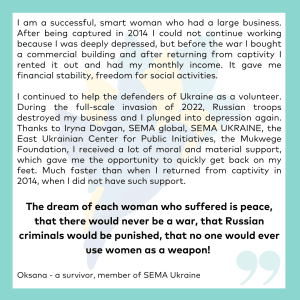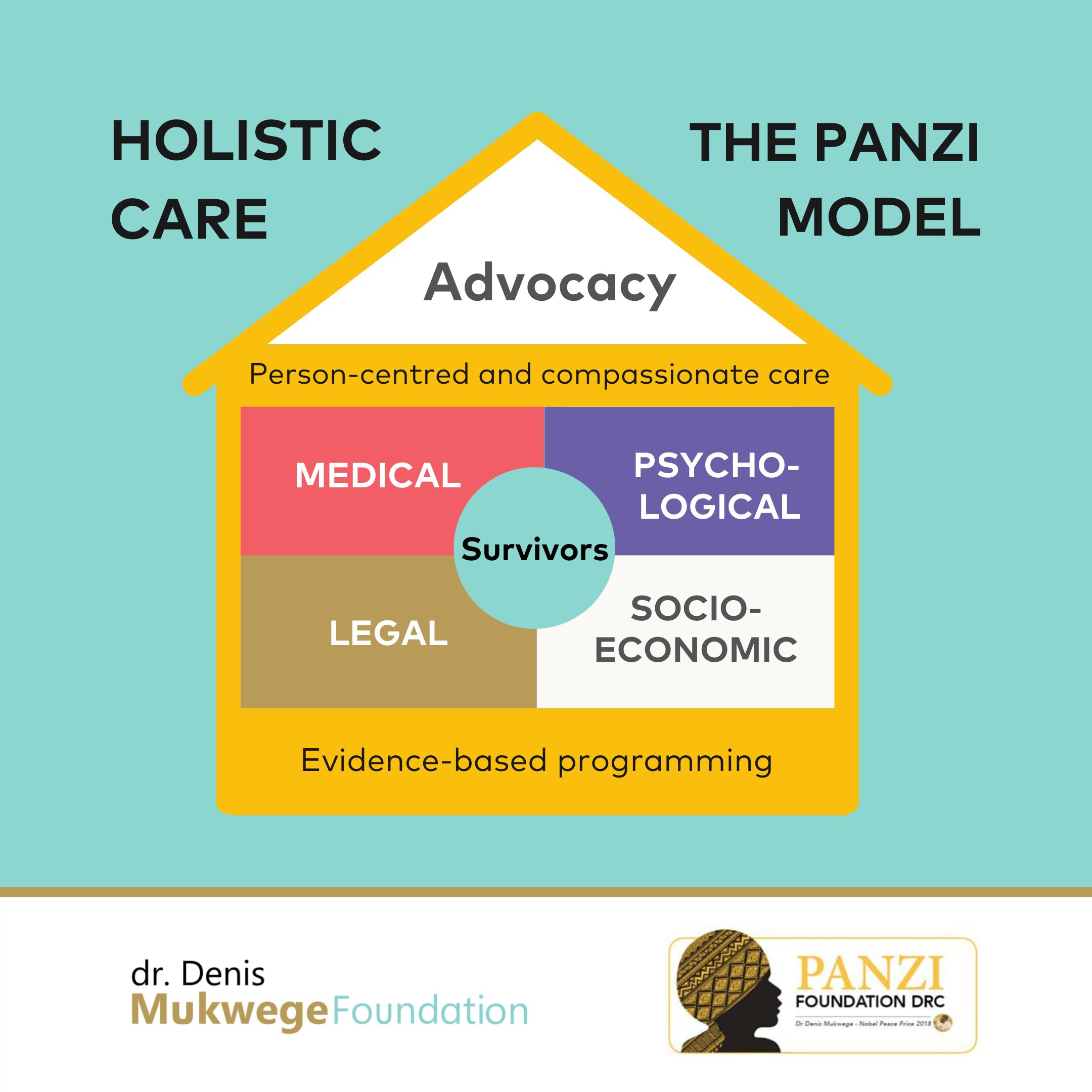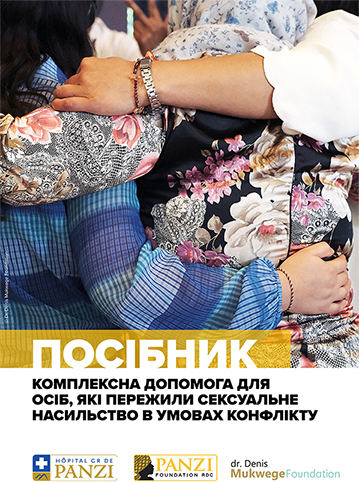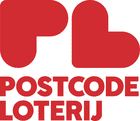February 23, 2023
Caring in Conflict Zones
The morning of February 24th 2023, marks 365 days since the start of the full scale invasion of Russian Federation armed forces in Ukraine. Sexual violence has been reported as one of the methods used to terrorise civilians and break their resistance towards RF forces.
Survivors of conflict related sexual violence in Ukraine face many challenges in obtaining the urgent care they need. The destruction of health facilities – which were selected as targets for shelling in Kyiv, Kharkiv, Sumy, Chernihiv, Luhansk, Donetsk and Mariupol – and other social service structures, particularly in East Ukraine, as well as fear of reprisals and stigma, prevent survivors from coming forward. As for victims in occupied areas, civil society actors are unable to reach or identify, let alone to care for them.
With the support of the Mukwege Foundation, the Ukrainian network of survivors of conflict-related sexual violence: SEMA Ukraine, has welcomed recent victims of violence into their movement and provided them with immediate humanitarian assistance, as well as a safe space for support and solidarity among peers.
Our team shares some reflections and recommendations of ensuring specialised holistic care for victims and survivors of sexual violence during ongoing conflict.
Sexual and Gender Based Violence in Conflict
Invited by the government of Ukraine, our team visited Lviv and Kyiv in April 2022 and met with government and civil society representatives together with survivors of conflict-related sexual violence (CRSV) who already faced atrocities in the Luhansk and Donetsk regions of Ukraine and in the aftermath of Russia’s occupation in Crimea in 2014.
These survivors are united within a network called SEMA Ukraine, created with the support of the Mukwege Foundation in 2018. During our time together in Kyiv in early 2022, SEMA Ukraine members shared with us some of the testimonies they had heard , indicating threats and acts of sexual violence being used to spread terror among civilians in occupied towns and villages. We listened with horror to the reports of rape and other forms of sexual violence, and the excruciating fear generated. Families are hiding their children in wardrobes and under bags of potatoes during incursions. We learned of soldiers going door-to-door looking for women and girls, forcing them into hiding in the forest in sub-zero temperatures.

Since the start of the crisis, until January 2023, the Ukrainian Prosecutor General’s Office has recorded 155 cases of wartime sexual violence – mostly in Kherson and Kyiv regions. Although it is not yet possible to have a complete idea of the scale of conflict-related sexual violence in Ukraine, all reports of sexual of violence in wartime, are of major concern.
As in other conflict-affected contexts, it may still take years before Ukrainian victims of sexual violence are ready to speak out. It is therefore important to work under the assumption that the officially recorded numbers are just the tip of the iceberg. Many victims of CRSV, including rape, forced nudity, torture or other abuses, do not come forward immediately. Different frontline responders and referral actors shared with us in 2022, that a victim of rape, forced nudity or another form of gendered violence, might feel that their suffering was not comparable to those who had lost their lives, or their loved ones. Stigma toward sexual violence victims and survivors, misplaced feelings of shame and guilt, all further prevent victims from coming forward.
Ukraine boasts a robust gender-based violence prevention and response infrastructure but the centres and mobile teams within this infrastructure, do not have the knowledge or competencies specific to managing CRSV cases. We have received multiple requests for capacity-building and accompanying on key themes such as:
- how to interview CRSV victims and document cases,
- how to ensure care for child victims and witnesses,
- how to ensure trauma-sensitive and survivor-centred medical-legal documentation of cases,
- how to ensure clear and coordinated referral paths
- how to manage risks for secondary trauma and transference for those care-workers on the frontlines.
Alongside these technical training needs though, it is crucial to restore and reinforce trust among victims and survivors of sexual violence and the institutions responsible for caring for them.
Engaging on survivor-centred holistic care
In July 2022, the Mukwege Foundation and the Global Survivors Fund signed an agreement with the Ukrainian Office of the Deputy Prime Minister for European and Euro-Atlantic Integration and Apparatus of the Government Commissioner for Gender Equality Policy. All parties commit to supporting Ukraine-led efforts to deliver quality survivor-centred holistic care and develop an early reparations framework, for survivors of conflict-related sexual violence.
Since then, we have worked alongside and in support of Ukrainian authorities, health professionals, civil-society actors and survivors themselves to ensure holistic care including access to justice and reparations, for all victims of CRSV. Across the board, Ukrainian authorities we met with, agree on the crucial importance of ensuring quality and comprehensive survivor-centred holistic care to victims of the conflict. Adopting a survivor-centred approach to all holistic response efforts in the current context, can play a key role in building trust and ensuring that victims who come forward receive quality care and effective redress.

A survivor-centred approach begins with recognising the centrality of victims and survivors, their capacities and the role(s) they are already playing and can play, in the processes and decisions that affect them, especially when it comes to their access to care.
Members of SEMA Ukraine are already identifying recent victims of sexual violence who reach out in need of immediate assistance for materials, housing, transport, communication, on top of the medical or psychological trauma resulting from the conflict and violence they have experienced. Mukwege Foundation is also supporting the systematic integration of survivors in policy discussions and processes, advocacy activities and in plans for rolling out a holistic model to prevent and respond to CRSV.
SEMA Ukraine members insist on creating the conditions necessary to encourage victims and survivors to come forward. Iryna Dovgan, the Coordinator of SEMA Ukraine, emphasises that there is still a lot of stigma surrounding sexual violence and most people are afraid if the assaults become known in their communities. Therefore, it is crucial to create a safe and comfortable environment for survivors to speak up without fear of retaliation or rejection – when they are ready to do so.
As Ukrainian survivors of sexual violence from the 2014 conflict highlight:
“Survivors need to hear that the people are with us, that the State supports us. That the victims and their families are not to be blamed, that this is a huge tragedy and that we will receive support to help us become who we were before”.
Partnerships for survivor-centred holistic care
Along with accompanying the process of ensuring survivor-centredness in all efforts to holistically prevent and respond to CRSV in Ukraine, the Mukwege Foundation has begun collaborations with different national and regional institutions, to create the conditions for providing survivor-centred holistic care.
“During this year, the Government managed to establish joint work of state bodies and institutions, as well as civil society and international organizations, in all areas of implementation of the program under the Framework of Cooperation between the Government of Ukraine and the UN system on preventing and responding to conflict-related sexual violence. An important lesson for all of us is the need to adopt a survivor-centered approach and to ensure interaction and coordination between all stakeholders involved in providing holistic care to survivors of conflict-related sexual violence,” said Kateryna Levchenko, the Ukrainian Government Commissioner for Gender Equality Policy.
MF’s partners in Ukraine include for example, the Institute of Paediatrics and Gynaecology in Kyiv, for the development of comprehensive training for medical and psychological care professionals and a Centre of Excellence for holistic care for women and girls affected by conflict. We will also be working with the Lviv Regional Perinatal Centre to ensure the availability of holistic care in this region. We will also be working with the National Agency for Civil Servants on developing a comprehensive, national training program for all Ukrainian civil servants on survivor-centred holistic care and CRSV case management.
We have collaborated with ARQ International as well to deliver training and consultations for frontline workers on staff-care and mitigating risks for secondary trauma. We have translated our handbook on holistic care into Ukrainian and have made it available to different State and civil-society partners who have already begun integrating best practices from the Panzi model, into different training and other activities they are implementing in Ukraine.
“The Holistic Care handboook developed by Dr Denis Mukwege and his team in DRC has received positive feedback from care providers and policymakers in Ukraine. Our aim is to continue raising awareness about this holistic care model and working alongside Government and CSO actors, to strengthen the response capacity of care institutions and to advocate for adaption of the philosophy for unconditional, survivor-centred approach. It is important to focus on the needs of survivors and foster a well-coordinated referral pathways between service providers despite the uncertainty and challenges that this conflict brings,” said Freddy Dunebabin, the Programme Manager of Mukwege Foundation in Ukraine.
Moving forward
Given what we know about conflict-related sexual violence in other contexts, and in Ukraine, we know that the few numbers who have been documented, do not paint a complete picture. Hundreds, likely thousands of victims of sexual violence live with their pain in secret and must find ways to move forward. Some, like Oksana, may struggle with depression or other consequences of trauma. Others may have short-term or long-term medical consequences such as infections or disease. Most, especially those in displacement, require socio-economic support and immediate material humanitarian assistance. All will require holistic care and support on the road to healing and transformation.
Survivors of conflict-related sexual violence need to know that testifying for legal proceedings is not an obligation for receiving care. Those responsible for documenting crimes and evidence, need to ensure that providing care to victims who come forward, is equally important to documenting human rights violations for legal proceedings.
Caring in conflict requires not only technical skills, it also requires a commitment to compassionate and person-centred care. Compassionate care recognises the wholeness and the dignity of the person, and ensures that care is responsive to their complex and interconnected needs.
Caregivers, particularly on the frontlines, need ongoing care and support from their peers and from others in order to continue their important work. For caregivers in conflict zones, it is impossible to separate trauma from work with victims of wartime violence, from the everyday trauma of also living through war themselves.
Different actors, across medical, psychological, legal and socio-economic sectors need to reinforce their collaboration and coordinate their actions to ensure that victims and survivors have access to holistic, quality and effective care.
Once towns and villages are liberated, it is critical to rebuild and restore institutions including hospitals and health centres, and ensure that they are equipped, staffed, supported and plugged into existing referral pathways, so that they can be easily accessible to survivors.
Most importantly, survivors themselves must be listened to, and centred, in all policies, programmes and decisions that affect them. They are experts in their own rights and have valuable knowledge that can improve the quality and effectiveness of care.
In the tragic absence of peace, now one year later, the Mukwege Foundation reinforces its call for high quality survivor-centred holistic care in Ukraine and for all survivors of conflict-related sexual violence around the world.
To learn more about the work of the Dr. Denis Mukwege Foundation in Ukraine, please contact us at info@mukwegefoundation.org

















